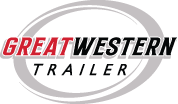Semi-Trailer Lease Purchase vs. Traditional Leasing: Which Option is Best for You?
When it comes to acquiring a semi-trailer for your business, the decision between lease purchase and traditional leasing can be a pivotal one. Both options offer unique advantages and drawbacks depending on your financial situation, business goals, and long-term plans. At Great Western Trailer, we understand that every trucking company’s needs are different, which is why we offer a range of semi-trailer leasing solutions tailored to suit diverse business models.
Together, let’s explore the differences between semi-trailer lease purchase and traditional leasing to help you make the best choice for your business.
What Is Semi-Trailer Lease Purchase?
A lease purchase agreement is essentially a hybrid option that combines the benefits of leasing with the eventual ownership of the semi-trailer. This option is ideal for businesses that want to eventually own their equipment but may not have the upfront capital to buy it outright.
What Is Traditional Leasing?
Traditional leasing involves renting the semi-trailer for a fixed period without any intention of ownership at the end of the lease term. Payments are generally lower than those in a lease purchase agreement because you’re essentially paying for the use of the trailer, not building equity.
Once the lease term expires, you can choose to either return the trailer, renew the lease, or upgrade to a newer model.
Semi-Trailer Lease Purchase vs. Traditional Leasing: Key Differences
- Ownership
- Lease Purchase: At the end of the lease term, you can choose to buy the semi-trailer, gaining full ownership of the asset.
- Traditional Leasing: You never own the trailer. Once the lease term is over, the trailer must be returned to the leasing company.
- Monthly Payments
- Lease Purchase: Payments are typically higher because a portion goes toward the eventual purchase price of the trailer.
- Traditional Leasing: Payments are generally lower because you’re only covering the cost of using the trailer, not its eventual purchase.
- Equity Building
- Lease Purchase: Part of each payment goes toward building equity in the trailer.
- Traditional Leasing: There’s no equity built. Once the lease ends, you have nothing to show for the money you’ve spent other than the use of the trailer.
- Flexibility
- Lease Purchase: While you can eventually own the trailer, you may face more restrictions regarding maintenance, upgrades, and modification. You’re generally responsible for the trailer’s upkeep during the lease period.
- Traditional Leasing: There’s more flexibility with a traditional lease. You can return the trailer after the lease term and upgrade to a newer model or switch to a different type of trailer.
- Tax Consideration
- Lease Purchase: Lease payments may be deductible as a business expense, and owning the trailer can offer depreciation benefits once you purchase it.
- Traditional Leasing: Lease payments are usually fully deductible as a business expense, which could be advantageous for tax purposes if you need to maximize deductions.
- Long-Term Investment
- Lease Purchase: If you plan on using a semi-trailer for many years and want to build an asset, a lease purchase could be the right option.
- Traditional Leasing: If you prefer a more flexible, short-term option or expect your equipment needs to change frequently, traditional leasing is a more suitable choice.
Which Option Is Right for You?
Choose Lease Purchase If:
- You want to own the trailer at the end of the term.
- You have long-term plans to use the equipment.
- You’re looking to build equity and eventually reduce operating costs after the purchase.
- You can manage higher monthly payments but need to preserve capital for other investments.
Choose Traditional Leasing If:
- You need flexibility and the ability to upgrade or change equipment frequently.
- You want to keep monthly payments as low as possible.
- You don’t want the responsibility of ownership, maintenance, or resale.
- You have short-term equipment needs or are still exploring the market.
The decision between lease purchase and traditional leasing depends on your business needs, cash flow, and long-term goals. If you’re looking to own your equipment and build equity, a lease purchase might be the right choice. However, if you prefer flexibility with lower monthly payments, a traditional lease could be the better option.
At Great Western Trailer, we’re committed to providing the best solutions for your fleet needs. Reach out to us to discuss how we can support your business growth with our leasing options.
About Great Western Trailer
Since 1997, Great Western Trailer has been a trusted name in the semi-trailer industry. We proudly serve customers across 10 locations in the United States, offering Sales, Rentals, Leasing, Parts, Service, and Repairs.
Find us at: Phoenix, AZ – Fontana, CA – Dearborn, MI – Albuquerque, NM – Oklahoma City, OK – Tulsa, OK – Grants Pass, OR – Dallas, TX – Houston, TX – Salt Lake City, UT.

